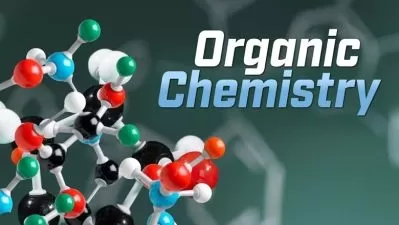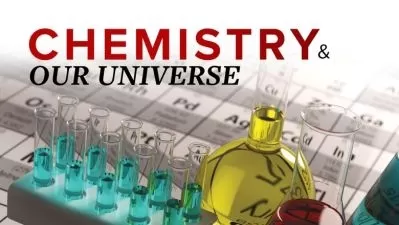Lithium-Ion Batteries - From Chemistry to Engineering
Sebastian Weiß
5:46:43
Description
A Breakdown of Key Aspects and a Comprehensive Look into the Chemistry, Economics and Engineering of Li-ion Batteries
What You'll Learn?
- Basics of Energy Storage - Storage types, necessity of energy storage, global players, interdependence of Battery performance parameters
- Electrochemistry - Fundamentals of electrochemistry to gain a deeper understanding of later discussed challenges and development goals
- Setup and Performance - Battery component introduction, losses during charging/discharging, and impacts on the performance and lifetime of the Battery
- Cell Components - Detailed analysis of state-of-the-art electrode materials, separator, and electrolyte
- Cell Manufacturing - Essential steps to build a Battery, cell geometries, and safety considerations
- Economics of Battery Storage - Challenges in Battery pricing, supply chains, material supply, development roadmaps, and R&D objectives
Who is this for?
More details
DescriptionUnlock the Secrets of Lithium-Ion Batteries and Master the Engineering Behind Them!
In this comprehensive course, you'll delve into the science and engineering of one of the most important energy storage technologies of our time.
Whether you're an engineer, scientist, or simply curious about energy storage, this course is perfect for anyone interested in the future of sustainable energy.
From the basics of lithium-ion battery chemistry to advanced material concepts, you'll understand how these batteries work and how they're used in a wide range of applications, including electric vehicles, portable electronics, and renewable energy systems.
The curriculum of this course will allow you a step-by-step introduction by covering the following topics:
Basics of Energy Storage - To grasp the wide-ranging impact of energy storage technologies, we will have a look into different types, application areas and global players.
Electrochemistry - As the foundation to understand the following chapters and the battery technology, we will cover a few simply basics of electrochemistry to get you started.
Setup and Performance - You will learn about the essential parts of any (Li-ion)Â battery and how their performance is affected e.g. by temperature, charging speed and many more.
Cell Components - Each component and material of a Li-ion battery will be discussed in detail with requirements, advantages, disadvantages and current research trends. You will understand how a cell can be tailored to individual applications.
Cell Manufacturing - We will cover the steps involved in battery manufacturing, cover typical cell types and safety aspects.
Economics of Battery Storage - You will learn about the battery development roadmap, material cost, demand, supply chain risk and future trends.
Finishing this course, you will be able to talk about the operational principle of Li-ion Batteries, employed materials, performance parameters, safety, cell manufacturing, economic aspects and many more things which help you to excel in your work and studies!
Who this course is for:
- Anyone who is interested in basic principles of Li-ion Batteries
- Anyone who wants to gain a broader understanding of Li-ion Battery Chemistry and Engineering
- Anyone who is interested in Renewable Energies
- Anyone who aims to review and broaden material chemistry knowledge
- Anyone who is interested in the economic challenges of Li-ion Batteries
Unlock the Secrets of Lithium-Ion Batteries and Master the Engineering Behind Them!
In this comprehensive course, you'll delve into the science and engineering of one of the most important energy storage technologies of our time.
Whether you're an engineer, scientist, or simply curious about energy storage, this course is perfect for anyone interested in the future of sustainable energy.
From the basics of lithium-ion battery chemistry to advanced material concepts, you'll understand how these batteries work and how they're used in a wide range of applications, including electric vehicles, portable electronics, and renewable energy systems.
The curriculum of this course will allow you a step-by-step introduction by covering the following topics:
Basics of Energy Storage - To grasp the wide-ranging impact of energy storage technologies, we will have a look into different types, application areas and global players.
Electrochemistry - As the foundation to understand the following chapters and the battery technology, we will cover a few simply basics of electrochemistry to get you started.
Setup and Performance - You will learn about the essential parts of any (Li-ion)Â battery and how their performance is affected e.g. by temperature, charging speed and many more.
Cell Components - Each component and material of a Li-ion battery will be discussed in detail with requirements, advantages, disadvantages and current research trends. You will understand how a cell can be tailored to individual applications.
Cell Manufacturing - We will cover the steps involved in battery manufacturing, cover typical cell types and safety aspects.
Economics of Battery Storage - You will learn about the battery development roadmap, material cost, demand, supply chain risk and future trends.
Finishing this course, you will be able to talk about the operational principle of Li-ion Batteries, employed materials, performance parameters, safety, cell manufacturing, economic aspects and many more things which help you to excel in your work and studies!
Who this course is for:
- Anyone who is interested in basic principles of Li-ion Batteries
- Anyone who wants to gain a broader understanding of Li-ion Battery Chemistry and Engineering
- Anyone who is interested in Renewable Energies
- Anyone who aims to review and broaden material chemistry knowledge
- Anyone who is interested in the economic challenges of Li-ion Batteries
User Reviews
Rating
Sebastian Weiß
Instructor's Courses
Udemy
View courses Udemy- language english
- Training sessions 51
- duration 5:46:43
- Release Date 2023/02/14










